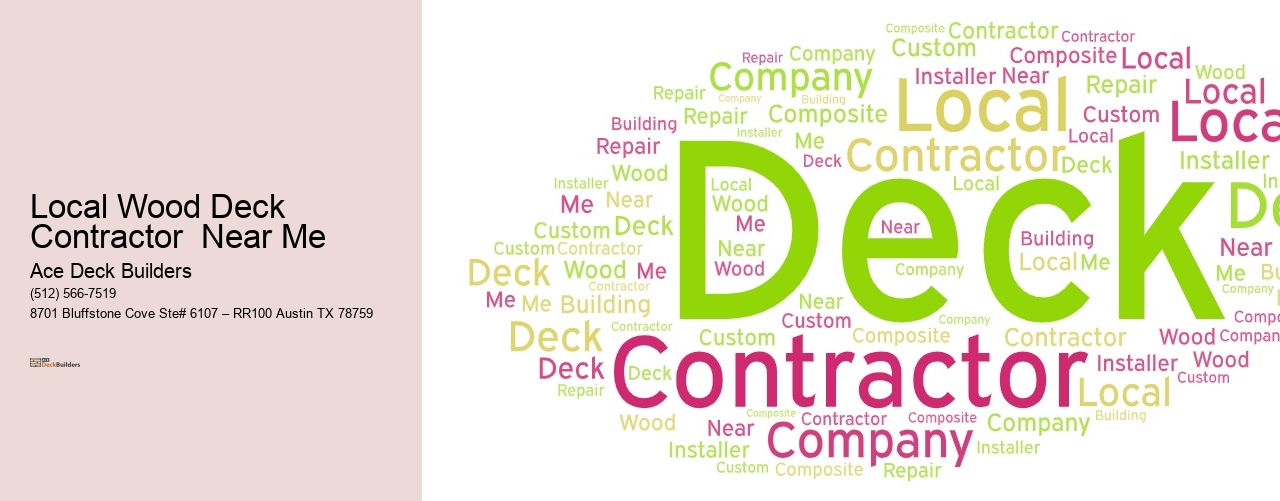

Ace Deck Builders – Your Partner for Quality Deck Building in Austin
At Ace Deck Builders, we combine craftsmanship, creativity, and attention to detail to deliver decks that not only enhance your home’s exterior but also improve your lifestyle. As trusted deck contractors in Austin, we specialize in building functional, stylish outdoor spaces that you can enjoy for years to come.
Whether you’re drawn to the beauty of natural wood or the convenience of composite materials, we help you select the perfect decking solution based on your preferences, climate, and budget. Our meticulous approach ensures your deck is built to the highest standards, with every plank, joint, and finish carefully executed for lasting beauty and strength.
Our diverse range of projects includes everything from cozy, single-level decks to expansive multi-level designs with features like custom lighting, built-in seating, and pergolas. We take pride in delivering decks that not only look beautiful but also stand the test of time.
From consultation to construction, our team is dedicated to clear communication, dependable timelines, and the highest quality craftsmanship. At Ace Deck Builders, we get the job done right, ensuring you have a space you can enjoy for years.
Ready to build a custom deck that complements your home and lifestyle? Contact Ace Deck Builders today and let’s get started.
The type of soil in your yard plays a crucial role in the design and construction of a deck. Sandy soils, for example, offer excellent drainage but may lack stability, necessitating deeper footings or additional reinforcement to ensure the deck's foundation is secure. Clay-heavy soils, on the other hand, retain moisture and can shift significantly with changes in weather, which might require a more robust below-ground support system to prevent warping or damage to the structure over time. Understanding soil composition is essential to determine the type of footings and the depth required for a stable deck that can withstand environmental stressors.
Beyond soil stability, the landscape surrounding your home defines how you'll orient your deck. The topography – whether it be flat, hilly, or somewhere in between – affects both aesthetic considerations and practical design elements such as drainage and accessibility. In areas with significant slope, multi-level decks can provide flat surfaces that are otherwise unavailable in the yard while also creating dynamic visual interest. Additionally, utilizing natural contours to direct water away from both house and deck foundations is critical to avoid potential damage caused by runoff.
A well-designed deck should not only complement the home but also blend seamlessly with its natural surroundings. This involves choosing materials and colors that harmonize with existing trees, shrubs, rocks, and other elements native to your garden's landscape. For instance, using stone accents in areas abundant with rock formations can tie your outdoor living space into its environment beautifully. Incorporating existing trees into your deck layout adds shade and wind protection while preserving nature's contributions to backyard serenity.
It’s imperative to consider long-term environmental changes when planning a deck's design. Soil erosion over time can affect foundation stability; thus selecting appropriate ground cover or implementing retaining walls could be necessary measures for preservation. Similarly, accounting for potential growth of trees and plants ensures they won’t interfere with structures or become hazards during storms. Planning ahead means considering seasonal variations from intense sun exposure affecting materials' coloration and longevity to freeze-thaw cycles that might impact structural integrity if not properly addressed during construction phases.
| Professional Deck Contractors in Austin | |
|---|---|
| Deck Contractors in Austin | Skilled and licensed deck contractors serving residential and commercial clients in Austin, TX. |
| Deck Contractors in Austin Texas | Experienced Texas-based deck professionals delivering custom builds and repairs. |
| Top Deck Contractors Austin | Highly rated deck experts recognized for craftsmanship and design excellence in Austin. |
| Deck Contractor | Certified individual or company specializing in building and repairing outdoor decks. |
| Deck Contractors | General term for providers of deck building, repair, and customization services. |
Before diving into aesthetics and materials, it's crucial to understand the building codes in your area. These regulations dictate the height, spacing, and structural integrity required for deck railings. They are in place to ensure safety and are legally binding, so check with your local building department or consult a professional to make sure you're compliant from the start.
Safety should be your foremost concern when selecting a railing for your deck. Ensure that the design you choose is sturdy and can withstand pressure, especially if you have children or pets. The gaps between the balusters should be narrow enough to prevent accidental slips or falls, typically no more than 4 inches apart as per most safety guidelines.
Deck railings come in a variety of materials including wood, metal, composite, glass, and cable. Each has its own set of benefits and maintenance needs. Wood offers a classic look but requires regular upkeep. Metal options like wrought iron provide durability while aluminum is lightweight and rust-resistant. Composite railings offer a wood-like appearance with less maintenance. Glass creates an unobstructed view and cable systems offer sleek modernity but might not be suitable for all climates.
The style of your home should guide you in choosing a deck railing that complements it seamlessly. Traditional homes may benefit from ornate wooden balustrades or classic wrought iron designs, whereas contemporary homes might suit glass panels or horizontal metal cables better. Consider also how the railing will appear both from the outside looking at your home and from within when enjoying your outdoor space.
Budget plays an undeniable role in decision-making; some materials cost more than others both upfront and over time due to maintenance requirements. Wood tends to be less expensive initially but may incur higher long-term costs due to upkeep compared to metal or composite solutions.
Maintenance commitments can sway your choice significantly since they impact both time investment and long-term expense. Wooden railings need staining or painting every few years; metals may need treatment against rust unless they're aluminum; composites require minimal attention; glass panels demand regular cleaning; while stainless steel cables might need tension adjustments over time.
Once you've weighed all these factors—local codes, safety concerns, material properties, aesthetic preferences, budget limits, and maintenance expectations—you can confidently select the right railing for your deck project. Obtaining samples where possible could help envision how different materials will look with your existing outdoor decor before making this significant investment into enhancing your home's exterior living space.

Look for contractors who specialize in decks, have high ratings from past clients, and offer detailed project estimates with clear timelines.
While it is possible to build a deck yourself, it is not recommended. Deck building requires specialized knowledge and skills; a poorly built deck can be dangerous and costly.
Research local deck contractors by reading reviews, asking for recommendations, and reviewing their portfolios to ensure they are experienced and professional.